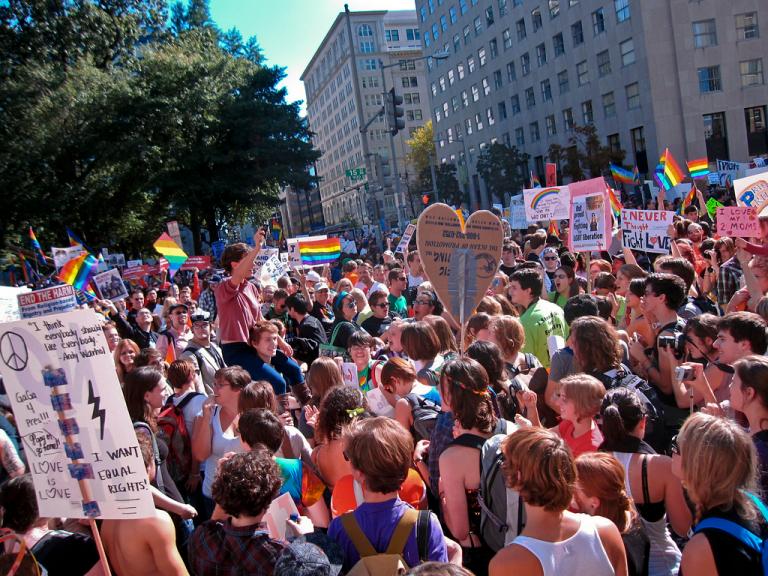In 2009, a study by researchers at Carnegie Mellon and Stanford made the case that the switch to downloading music from transporting physical CDs had significantly reduced the carbon footprint of Americans' music consumption.
That's just one of countless examples of "ephemeralization," which is the process by which new, post industrial-revolution technology tends to lead to our owning and transporting less stuff, not more. (The term was coined by noted genius/loony Buckminster Fuller, who also brought us “tensegrity.”)
Princeton Ph.D. candidate Timothy B. Lee argues that this process is happening to countless goods and services, including "typewriters, newspapers, magazines, books, maps, cameras, film development, camcorders, yellow pages, music players, VCRs and DVD players, encyclopedias, landline telephones, television and radio broadcasts, calendars, address books, clocks and watches, calculators, travel agents, travelers checks, and so forth."
That's good news, as long as the data centers that power all that web-based ephemeralization keep their power consumption under control.



